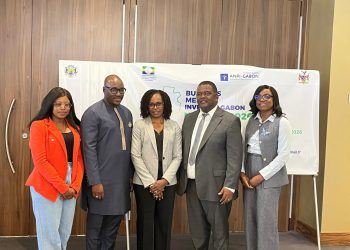
By John Steytler
Namibia is on the cusp of a historic transformation with recent offshore oil discoveries; the country has the potential to become one of Africa’s major energy producers.
In previous articles, wearing my economist’s hat, I spoke of the need to avoid the ‘resource curse’ and the Dutch disease.
Many column inches have been filled by other professionals, both nationally and internationally, wagging a finger and speaking of a potentially bleak outlook for Namibia, apart from a happy few well-connected individuals.
Other countries can serve as cautionary tales in the handling of their newfound oil riches. I don’t want to name specific countries, as naming and shaming serve no purpose. Namibia must embrace the challenge of harnessing oil revenues for sustainable development while avoiding the traps of mismanagement and overdependence.
Some countries that discovered oil assumed and anticipated immediate wealth for everyone. Large oil discoveries come with the investment of billions of US dollars from oil majors. Despite the Foreign Direct Investment (FDI) in extracting oil resources, a windfall for all did not materialize.
Poverty remained widespread, with citizens feeling they received scant benefits from the petrodollars. There are many reasons for this. Analyzing these reasons and understanding how to avoid some of the pitfalls is how Namibia can turn the oil discoveries into a blessing for every Namibian.
Weak institutions and governance gaps, coupled with a lack of stringent regulatory and oversight frameworks, create an environment where opaque contracts and limited accountability become the norm.
It is very positive to see that Namibia is being very conscientious in setting up its governance structures. The direct engagement that GRN has with oil companies and supplier companies to ensure that Namibia benefits from more than just tax revenue shows that Namibia is serious about guaranteeing that oil and revenue benefit every Namibian.
GRN seems to recognize that it has a once-in-a-lifetime opportunity to improve the socio-economic status of every Namibian, if the oil revenue is managed effectively. It will be essential to channel the revenue and the local opportunities into creating broad-based improvements in healthcare, education, or infrastructure.
Namibia has in fact established the Welwitschia Fund, a sovereign wealth fund modeled after successful examples, such as Norway and Botswana’s. It is particularly encouraging that the Welwitschia Fund has strict withdrawals limits and a strong mandate to invest for the country’s long-term future. general.
To avoid the Dutch disease risks that several countries suffered from because of the influx of oil money, it is essential to plan and project sensibly and for the long term. For Namibia, the lesson is that oil wealth alone does not guarantee prosperity.
Oil revenues must translate into tangible improvements and jobs. Funds should be earmarked for healthcare, education, and rural development. By addressing inequality and poverty directly, GRN can ensure that oil wealth benefits all citizens, not just elites or foreign investors.
We must not be overly reliant on oil revenues; we need to divest from oil as the revenue starts flowing. The oil revenues must catalyze, creating an environment that promotes the growth of these other sectors. If global oil prices fall, we must be resilient enough as an economy to weather potential price shocks.
Regrettably, we must address corruption and mismanagement. There are numerous examples of countries worldwide where billions in oil revenues were siphoned off through patronage networks and poorly managed state enterprises.
Our President, the Hon. Netumbo Ndaitwah, has vowed to stamp out corruption and any chance of this happening in Namibia. This is great, and if we get this right, our country’s oil resources will truly become a blessing.
Namibia recognize that oil can be both a blessing and a curse. We must embrace the principles of Harambee and pull together to ensure that oil will be a blessing for every Namibian.
Namibia’s oil discoveries present a once-in-a-generation opportunity. By building strong institutions, managing revenues transparently, diversifying the economy, and investing in its people, Namibia can chart its own course, continually building on and borrowing from best practices and case studies. Oil should not define Namibia; it should be its blessing and finance its future.
* John Steytler is a Founding Member and MD of R&J Steytler







